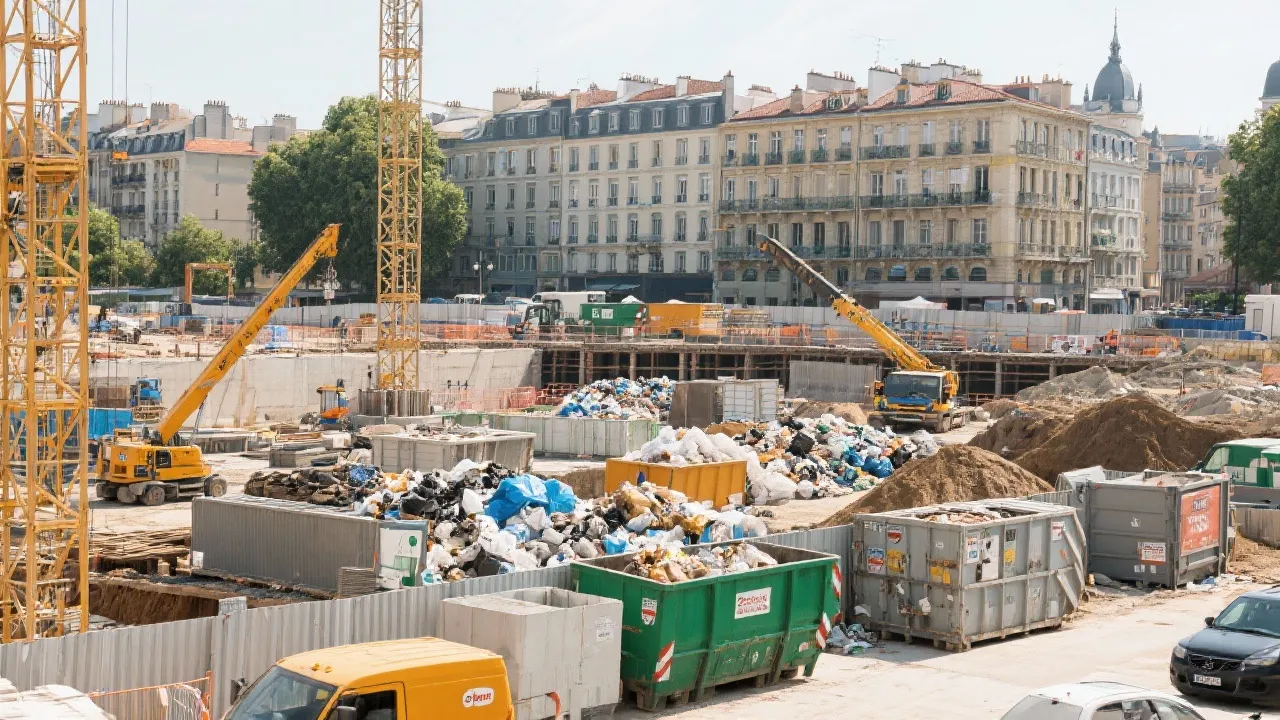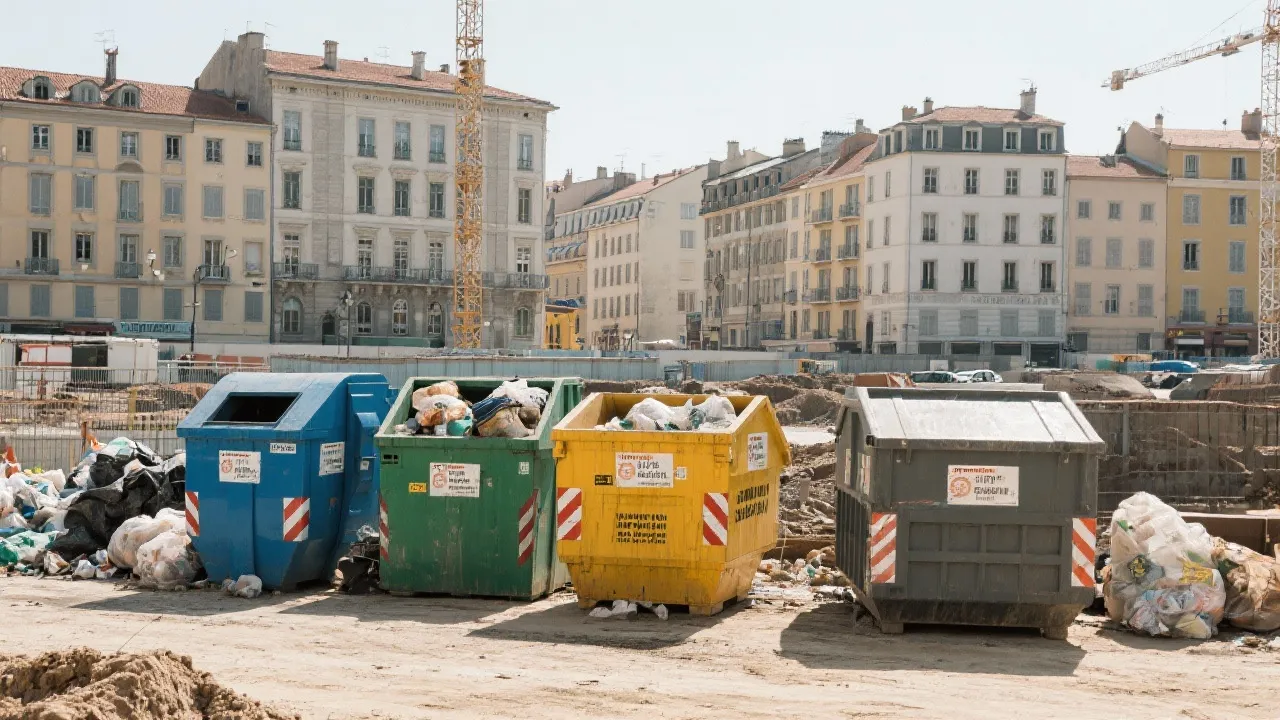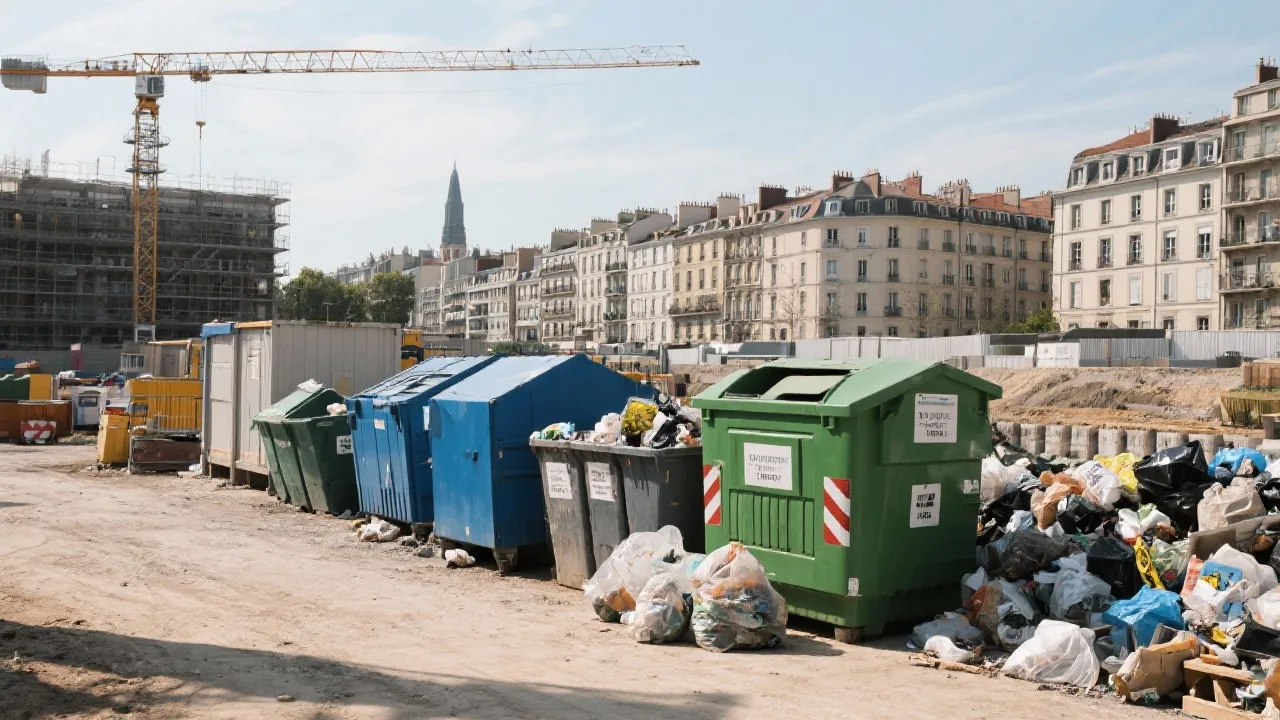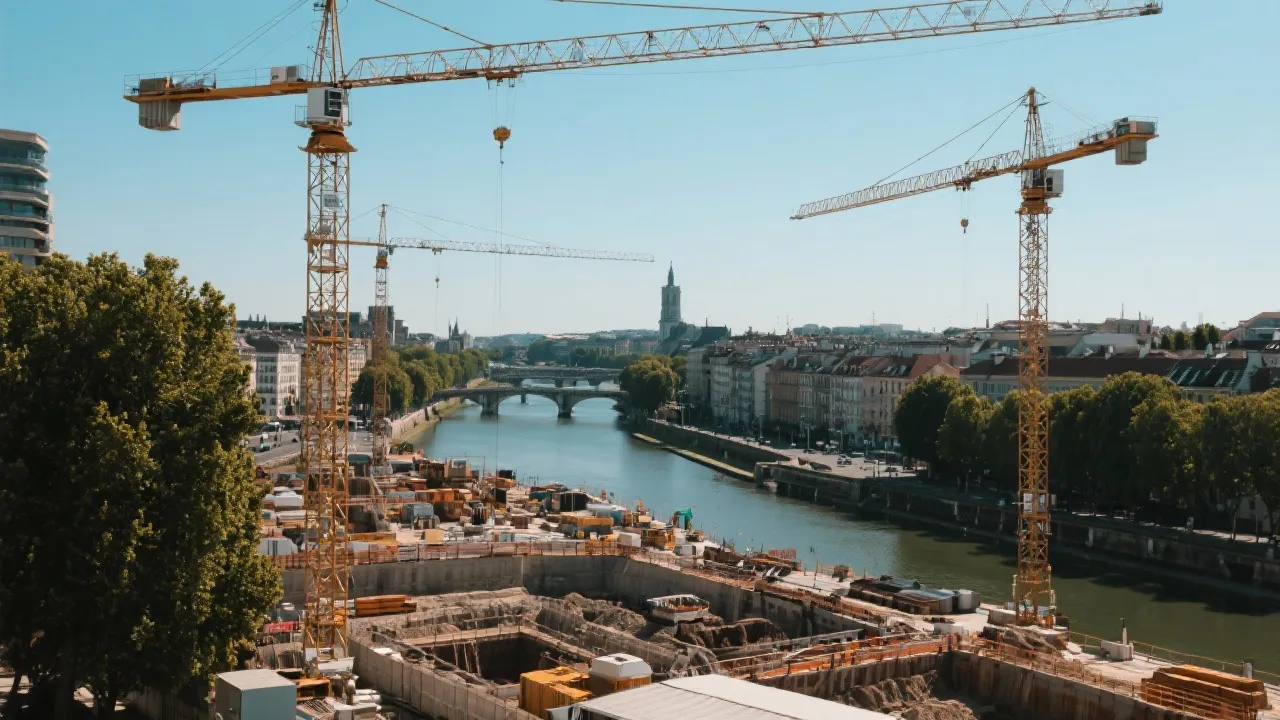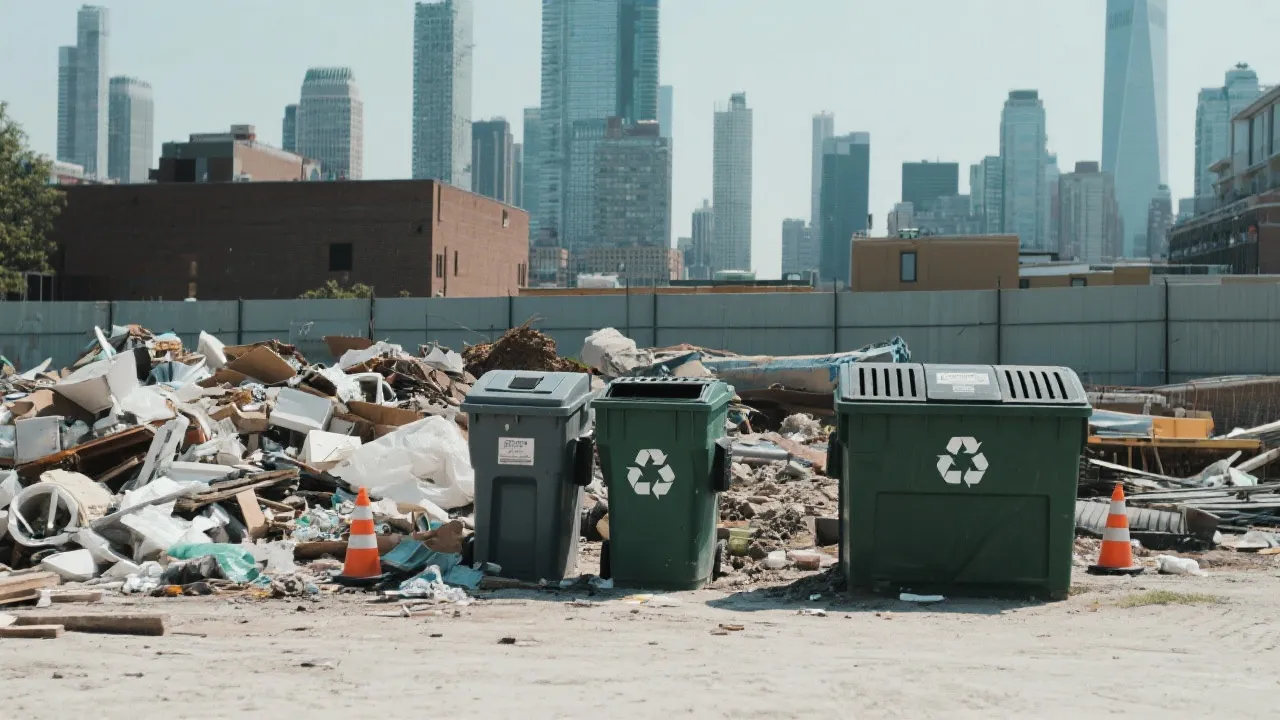Managing Construction Waste Nearby
The effective elimination of construction waste nearby involves strategic partnerships and innovative practices. Construction and demolition activities generate substantial waste, necessitating a robust waste management system. By analyzing industry trends, local regulations, and sustainable solutions, construction firms in Lyon are adopting efficient waste strategies to minimize environmental impact and promote recycling.
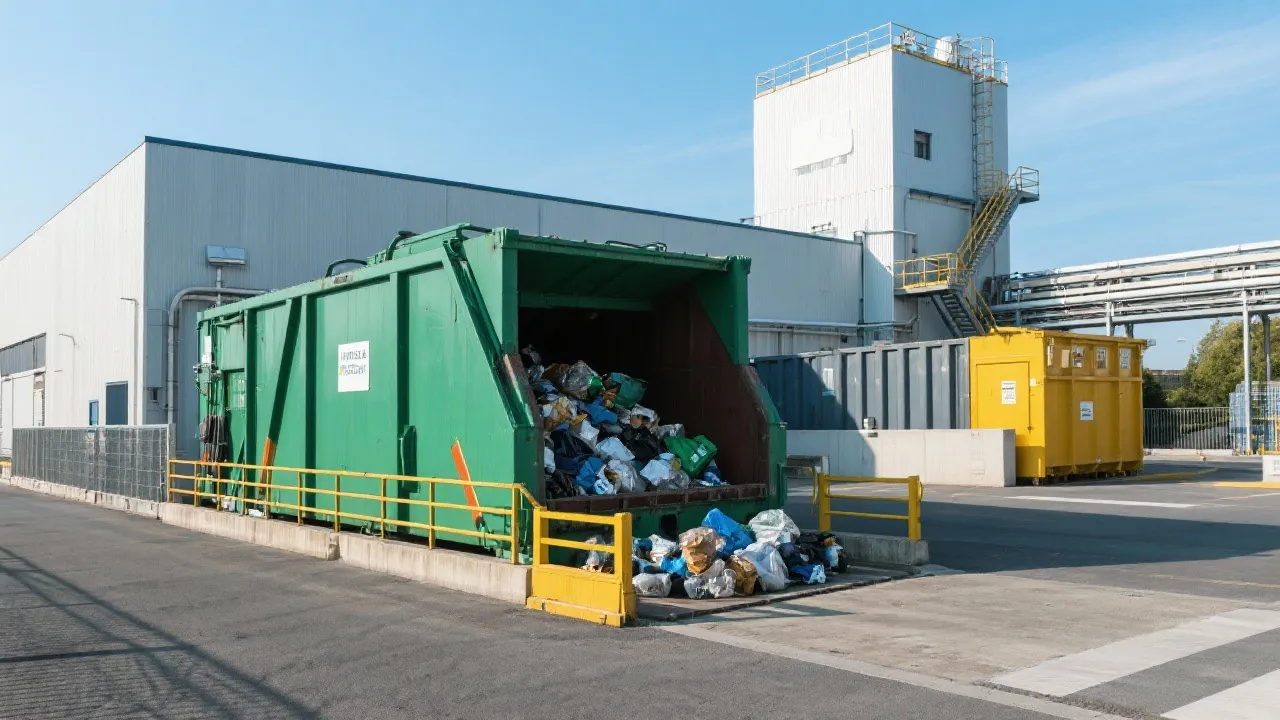
Efficient Waste Management Strategies
In the bustling industry of construction, the challenge of waste elimination is a significant concern. With a myriad of projects typically unfolding across nearby areas, managing construction debris efficiently is paramount. Recent years have witnessed innovative approaches tailoring waste management to meet both regulatory standards and environmental sustainability goals. Effective waste management not only ensures compliance with current regulations but also enhances the reputation of construction firms, contributes to community welfare, and fosters a more sustainable future. With an increasing emphasis on sustainability in construction, it is essential to consider a multidimensional approach that integrates various strategies and technologies aimed at improving waste management.
The Importance of Construction Waste Management
Construction sites produce a variety of materials that demand effective disposal or recycling methods to reduce their environmental footprint. The elimination déchets construction Lyon refers to initiatives tailored to mitigate the impact of waste through systematic collection, reutilization, and recycling. By reducing landfill reliance, construction companies not only comply with environmental regulations but also enhance their sustainability portfolio. The importance of construction waste management extends beyond mere compliance; it plays a crucial role in conserving natural resources, reducing greenhouse gas emissions, and fostering a circular economy. For instance, the effective reuse of materials decreases the need for new raw materials, thereby minimizing the environmental impact associated with extraction and transportation.
Sustainable Practices and Regulations
In evaluating sustainable practices, it is noteworthy that local regulations play a crucial role. Regulatory bodies mandate specific waste management protocols to diminish the adverse impacts on the environment. Compliance is not just a legal requirement but also a stepping stone towards greener construction practices. Various local governments and international organizations are working to strengthen regulations concerning construction waste. For example, the implementation of stringent reporting requirements helps ensure that construction waste is tracked, measured, and managed effectively. With developments such as the EU Circular Economy Action Plan, the construction industry is being urged to shift from a linear approach of 'take, make, dispose' to a more circular model where materials are reused and recycled. Sustainable construction practices not only enhance a project’s reputation but also appeal to a growing base of environmentally conscious clients and consumers.
Key Strategies for Waste Elimination
The effective elimination of construction waste encompasses various strategies, each playing an integral role in achieving sustainable waste management:
- Segregation at Source: On-site separation of materials ensures that recyclable and reusable materials are diverted appropriately. Forestalling contamination of recyclable materials is crucial to ensure high recovery rates. Waste bins can be placed strategically for various materials like metals, plastics, and wood, making it easy for workers to segregate waste as it is generated.
- Material Reuse: Salvaging materials such as wood, metal, and concrete for future projects reduces the overall waste generation. Reusing materials can range from utilizing leftover concrete for landscaping to reclamation of vintage bricks for restoration projects, which not only conserves resources but often gives a unique aesthetic to new constructions.
- Recycling: Partnering with recycling facilities enhances the recovery rates of materials like metals, which are often recycled into new products. Construction materials, specifically concrete, can be crushed and repurposed as aggregate in new construction, significantly reducing the demand for virgin aggregates.
- Training and Awareness: Educating workers regarding the importance of waste management fosters an organizational culture geared towards sustainability. Comprehensive training programs can include information on waste reduction techniques, the importance of segregation, and the environmental impacts of construction waste.
- Digital Solutions: Implementing digital tracking systems for waste can help managers understand waste generation patterns and identify areas for improvement. Utilizing software to monitor waste streams can lead to better decision-making and efficiency in managing and reducing waste.
- Engagement with Stakeholders: Involving contractors, suppliers, and clients in waste management strategies ensures collective responsibility towards sustainable practices. Stakeholder engagement is essential in developing effective waste management plans tailored to specific projects.
Waste Management Challenges in Lyon
The nearby construction industry is not without its challenges regarding waste management, which can often hinder the effective implementation of waste elimination strategies:
- Space Constraints: Urban areas face issues concerning the availability of adequate space for waste segregation and storage. Many construction sites are typically constrained in size and may not have room for multiple storage containers, leading to mixed waste streams and inefficient processing.
- Complex Regulations: Navigating through local and regional directives can be cumbersome for firms lacking expertise in environmental law. Companies may struggle to keep up with changes in regulations, resulting in potential violations and fines.
- Cost Implications: Implementing green strategies often involves upfront costs, which can be a deterrent for smaller firms. These costs may be perceived as a burden, especially in the early stages, even though they can yield long-term savings through waste reduction and improved efficiencies.
| Strategy | Description |
|---|---|
| On-Site Segregation | Sorting of waste at the project's location for efficient recycling and recovery. |
| Recycling Partnerships | Collaborating with recycling centers to process different materials and improve recovery rates. |
| Use of Prefabricated Materials | Utilizing prefabricated components can minimize waste generated on site and enhance efficiency. |
| Waste Audits | Regular assessments of waste streams to identify reduction opportunities and improve disposal processes. |
| Innovative Design Techniques | Incorporating waste reduction strategies into the design phase to avoid excess material usage. |
Innovations and Future Directions
Looking forward, embracing technology and innovation will be central to resolving waste management inefficiencies. Automated waste sorters utilize advanced AI systems to differentiate between materials, allowing for more efficient recycling processes. Digital tracking of waste through the use of IoT devices provides real-time monitoring and data analytics, enabling construction firms to optimize their waste management practices significantly. The implementation of Building Information Modeling (BIM) in project planning can lead to minimal material wastage by calculating the exact amount of materials needed for construction projects.
Furthermore, the trend towards modular and prefab construction materials allows for a reduction in construction times and improvements in waste efficiency. Prefab materials are created in controlled environments, leading to reduced waste generation compared to traditional building methods. Enhanced collaboration within the construction ecosystem is pivotal for fostering sustainable growth. By forming partnerships with waste management companies, recycling facilities, and local authorities, construction firms can develop shared solutions that advance sustainable practices and enhance their operations.
Global Trends in Construction Waste Management
In recent years, various countries have adopted innovative waste management strategies addressing the growing concern over construction waste. For example, countries such as Sweden and Germany have been pioneering initiatives that promote recycling and material recovery. Sweden, for instance, has implemented regulations that mandate a minimum percentage of recycled materials in construction projects, a practice that has influenced the development of new recycled material products.
On a global scale, there is also a rising trend towards zero-waste construction sites, where firms aim not just to minimize waste but to completely eliminate it through sustainable practices. This approach emphasizes waste prevention, resource recovery, and maximizing reuse, aligning closely with circular economy principles. Companies that adopt these strategies not only conserve resources but also improve their overall resilience against future supply chain disruptions.
FAQs
What is the main goal of construction waste management?
The primary objective is to minimize the environmental impact of construction activities through effective waste segregation, recycling, and reuse. This ultimately contributes to the health of the local ecosystem and community.
How can companies stay compliant with local regulations?
Companies should regularly consult with environmental experts and legal advisors to stay informed about evolving regulations and incorporate best practices accordingly. Additionally, attending relevant workshops and training can enhance awareness and compliance.
Are there economic benefits to sustainable waste management?
Yes, reducing waste disposal costs, enhancing material reuse, and avoiding regulatory penalties can improve a company's financial performance. Long-term, companies that prioritize sustainability often find themselves becoming more competitive in an increasingly eco-conscious market.
What role does technology play in improving waste management?
Technology is integral in streamlining waste management processes, from automating sorting to providing data analytics for better decision-making. Innovations such as IoT devices and AI can enhance efficiency and maximize recovery rates across the industry.
How can smaller construction firms overcome financial barriers to waste management strategies?
Smaller firms can explore grants or subsidies aimed at encouraging sustainable practices. In addition, establishing partnerships with larger firms or local governments can provide the necessary resources and guidance to implement effective waste management strategies without imposing a heavy financial burden.
By adopting these strategies and overcoming the associated challenges, the construction industry nearby is poised to make significant strides in environmental stewardship and sustainable development. The future of construction waste management lies within a commitment to ongoing education, innovation, and collaboration, ensuring that the industry not only meets but exceeds the expectations of environmental sustainability.
-
1

Revolutionizing Smiles: The Breakthrough Innovations in Dental Implants Changing Oral Health Care Forever
-
2

Unveiling the Top Dental Implant Options for Seniors: Transform Your Smile with the Ultimate Guide to Restored Radiance
-
3

Understanding Dental Implants Costs and Financing
-
4

Discover the Key to a Dazzling Smile: Your Ultimate Handbook for Selecting the Ideal Tooth Replacement Option
-
5

Affordable Dental Implants Solutions Near You





